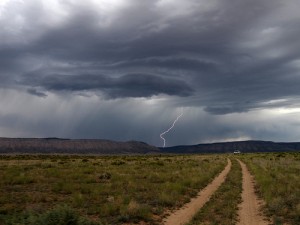PR Notes: Start with Optimized Websites
The first thing you should do for book publicity promotion is a website (or a blog). I know. Most of you have one.
But let’s do a check to see if it’s the most effective it could be.
1) Put your name into a search engine. Great. Your website/blog came up first (I hope!).
2) Describe your latest book in 4-5 words. For my forthcoming picture book next year, Prairie Storms (August, 2011, Sylvan Dell), I might list these words: prairie weather animals kids book.
Put those words into a search engine. Does your site come up on the first page of the results?

Can Anyone Find Your Site?
It’s no use having a website, if no one finds it! Tweaking your website to make sure search engines find you is called Search Engine Optimization (SEO). Last year, I did lots of tweaking and it doubled the traffic to my site. Yes, doubled it within six months.
I’m not going to do a whole tutorial on SEO here, you can find those online, as well as books devoted to the subject at your bookstore. Here, I just want to talk about keywords.
Keywords for your book
When I listed those words for Prairie Storms, I just pulled some out of the air, but I won’t do that when I create the website this year. I’ll look at statistics, because the online world is all about statistics.
First, you’ll want to use a tool like Google Adwords Keyword tool to help you find the right keywords. For this tool, you put in words that you think someone will use to find your book. For example for Prairie Storms, a teacher might use these keywords: weather unit lesson plans.
Try this with me. Go to the Keyword Tool and put in those words, one on each line.
I like to click at the top of the Local Monthly Searches column, so it will sort the results in descending order from the most searches on down.
Here are the top 3 keywords:
Weather – 68,000,000 searches / month
Plan – 20,400,000 searches / month
Lesson – 9,140,000 searches / month
Wow, lots of people are looking for weather related stuff! But if there are 68 million searches/month for “weather,” how many could I reasonable expect to come to my site? None. If you don’t show up in the top 30 results for a search term, very few people will click on your site. Page ranking is the term used to refer to how well a page on a website ranks on search engines. If you’re in position 10 for the keyword, “weather”, that would be fantastic.
What I need to do then, if find phrases where I might could get a high rank. In the Keyword tool, you can do this by putting phrases in brackets; also on the left-hand column, click on the Match Phrase; on the Contains column, I only want to see results for “weather lesson plans”. Searching for [weather lesson plans] there are 8,100 local searches/month. The competition is low enough that I could probably rank high on it.

Before I create the website for this book, I’ll probably repeat this process and decide on 4-5 keyword phrases.
If I rank #1 on that keyword, will I really get get 8,100 visits a month from that keyword? No. But I’ll get a good percentage of them. And it’s up to me and the content on my website to make sure the visitors stay a while and read about my book.
The next thing to do is to use that exact phrase on my website. I use the Live Keyword Analysis to check the percentage of times I use a phrase. I put my text into the tool, along with the word or phrase and it tells me how often I use it. You should shoot for 3-7% of the text including the keywords. Once you’ve optimized the use of the keyword, making sure the text reads in a natural way, it’s ready to put on your website.
Tedious sounding? Maybe.
But it’s meant doubling the traffic to my blog in the last year, something which has helped get the word out about my work. And that’s what we care about, isn’t it? It’s something simple that I can do, something that is totally within my control and outside the publisher’s control, and something that works.
What keywords will you use on your author website? Do you specialize in medieval historical novels for teens? Or do you write nature animal books? Choose your keywords carefully for your general website and especially for each webpage about your books.
What keywords have worked well for you?
P.S. Mary Nida reminded me in the comments that blogs are as important as website. In reality, all this keyword stuff works for blogs and/or websites. So, I made a few revisions above to emphasize this.
Yes, a website is important. To me a blog or blogs are more inportant.
Mary Nida:
Yes, blogs are VERY important, too. And the keyword analysis will help your blog posts rank high, too. Thanks for reminding me to mention that.
Darcy
Thank you for putting this together. Don’t have a website yet, but you’ve given me something important to consider.
Glad to see the comment about blogs, and I’m looking forward to using this tool with my own.
;-)